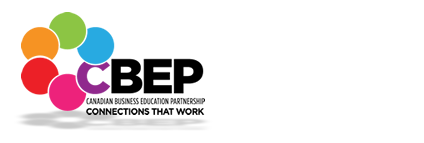Employers Can See
January 21, 2009
Be smart about your online profile especially when searching for work
 January 13, 2009
January 13, 2009
Candice Choi
The Associated Press
NEW YORK
Someone is trying to sabotage your career. It's your online persona.
With smaller budgets and less staff to conduct interviews, companies are increasingly using social networking sites as a way to screen prospective hires.
That's why Lauren Miller, who was laid off in October, is so vigilant over her Facebook profile. She watches for any photos friends might post showing her holding a drink. Off-colour comments by anyone are immediately deleted.
"You never know how things will be perceived,'' said Miller, a resident of Hoboken, N.J., who worked in corporate communications.
At times, she wonders if a recruiter needs to know that she's 36, single and Jewish before she walks in the door for an interview.
Social networking sites typically let you post as much information about yourself as you like, including your education, work history and favourite music and books. You can join countless fan groups or causes. Status updates, which tell how you're feeling at any moment, offer yet more clues about you.
How much you should reveal varies depending on your situation, of course.
In some creative fields, showcasing a quirky sense of humour might score you points. Your love of marathons might even get you in the door with certain hiring managers.
The bottom line is that if you're looking to land (or keep) a job, you need to treat your online profile like a resume -- keep it scrubbed and up to date. There are a few points to remember.
One of the first steps in staying on top of your online profile is being aware of the privacy settings.
Facebook, for instance, lets you join networks that tie users with a common bond, whether it's a company, school or where you live. You need a valid email address to join the first two types of networks, but anyone can join a regional network.
The default setting on the site lets friends and everyone in your network see your profile.
If you're not comfortable with this setup, you can tweak settings to control who sees what. You can even cherry pick which friends can see select photos.
"If you have your privacy set properly, you really are controlling every aspect of how your profile is viewed,'' said Brandee Barker, a Facebook spokesperson.
That said, it's always safer to assume anything you post online can become public. After all, Facebook has more than 140 million registered users.
Miller has her settings so only friends can view her profile, but she maintains her page as though anyone can see it.
"I'm always cognizant of the fact that this is a public domain,'' she said.
Besides, if a recruiter finds your profile and sends you a friend request, would you turn it down?
There's nothing wrong with revealing your love of biking, dogs or Malcolm Gladwell books. But even if you set up a profile for personal reasons and don't intend for potential employers to see it, there's a good chance they'll search for it.
A member survey by the Society for Human Resource Management last year found 34 per cent said they currently use social networking sites to recruit potential applicants, while another 19 per cent said they plan to in the future.
Of those who used social networking sites to screen applicants, 47 per cent said they did so before contacting the applicant for the first time.
"If a recruiter comes across your profile, there's a risk they'll judge you based on information that's not relevant to your job,'' said Alison Rosenblum, co-owner of Strategic Resources, a recruiting firm in Albany, N.Y. "It shouldn't be relevant, but it is.''
Still, it can work in your favour to share your interests online.
Even LinkedIn, a social networking site designed specifically for professionals, includes a field where users can list interests. The idea is that such personal details can help forge bonds in the professional world. It happens all the time in face-to-face interviews; people click over a shared alma mater, hometown or hobby.
"It's a way to connect with people you want to do business with,'' said Kay Luo, a spokesperson for LinkedIn, which has more than 33 million users worldwide.
